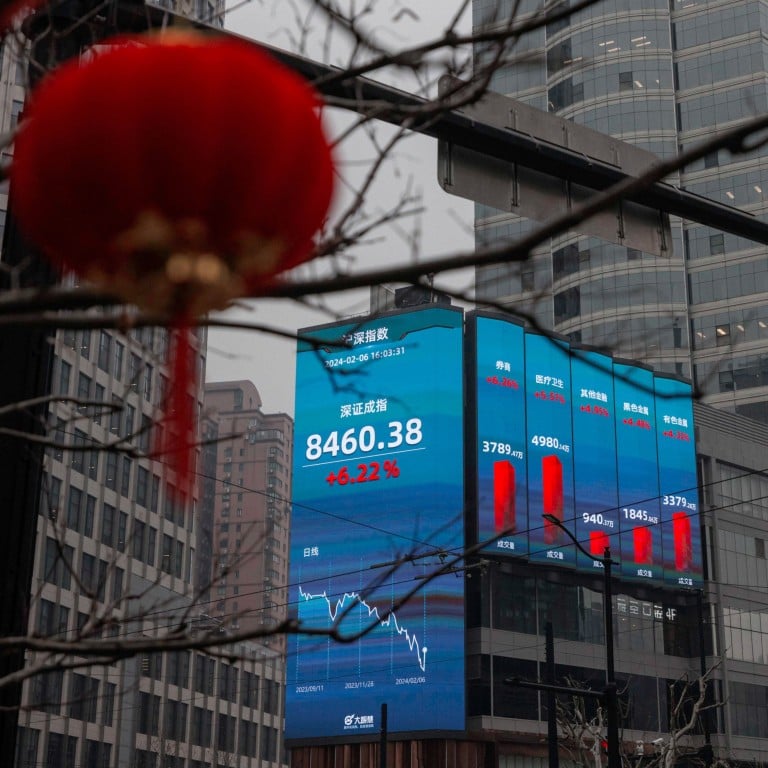
‘Broker Butcher’ can help bring stability to China stock markets
- Beijing again looks to Wu Qing, who cracked down on malpractice at brokerages, to bring a firm hand and pave way for new investment measures
China’s stock markets have been enduring a protracted maelstrom that has seen them shed US$3 trillion in value over the past year, even as US shares hit records. A post-pandemic economic bounce has failed to materialise. Property developers who fuelled growth amassing piles of cheap debt met their comeuppance as interest rates rose – China Evergrande Group was ordered to liquidate in January. The slump has captured the attention of China’s leaders.
Regulators have begun to take action, through policy tweaks, as well as changes in personnel to bring stability to the roiled markets. The appointment last week of capital markets veteran Wu Qing as the new China Securities Regulatory Commission head is a sign of their seriousness. Wu’s time with the CSRC dates from the early 2000s, when he earned the nickname “Broker Butcher” by cracking down on malpractice in the industry, shutting 31 brokerages.
In 2016, Wu was brought in as chairman of the Shanghai Stock Exchange in the wake of a US$5 trillion rout that pummelled China’s markets the previous summer. Over the next two years, he put in measures to stabilise the market and promote collaboration, expanding the Shanghai-Hong Kong Stock Connect. He became a Shanghai vice-mayor in 2018, earning a reputation for pragmatic handling of the city’s growth, working under Li Qiang, then Shanghai party secretary and now premier. Together they lured Tesla to set up the first 100 per cent foreign-owned car factory in China
China appoints new securities chief to head off stock market slump
New York and Shanghai have experienced mixed fortunes because global capital has flocked to the United States and its interest rates of more than 5 per cent. With Wu’s experience in curbing malpractice, one can expect him to bring a firm hand to the markets − possibly strengthening the restrictions on short selling and redirecting exchange-traded funds from offshore markets such as Japan to onshore A shares, to curb concerns over capital flight. But these should be short-term remedies. To be healthy, China’s markets require investment options, including short selling and other tools to hedge risk, alongside stocks, bonds, derivatives, ETFs, wealth management products, insurance and long-term savings plans.
Hong Kong, with its mature and free markets, has a role to play in encouraging best practice in the mainland markets. Short selling is currently enduring unfairly heavy scrutiny – it took two decades for China to allow the limited version currently in place, but it does allow buyers the option to hedge and protect themselves against the downside. Investor education about hedging tools is needed, rather than bans. Steadying the markets is important in the short term, and Wu has his work cut out for him. But long term, China’s markets need the full array of investment tools.

